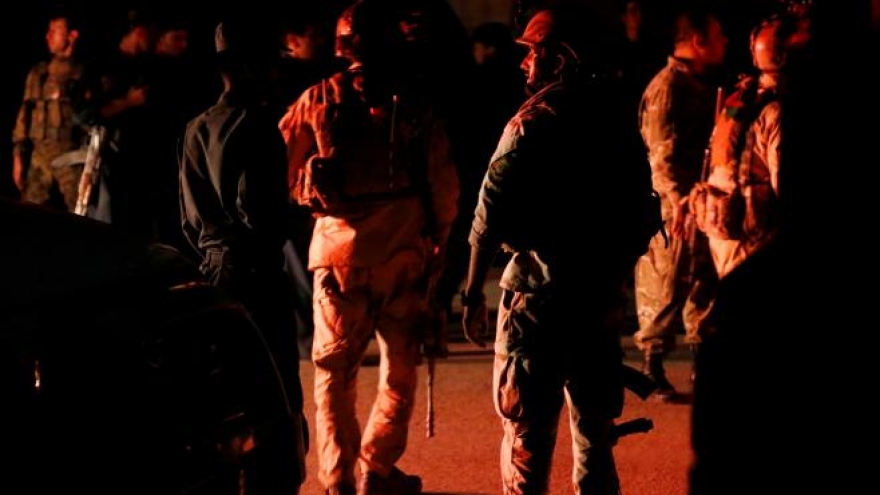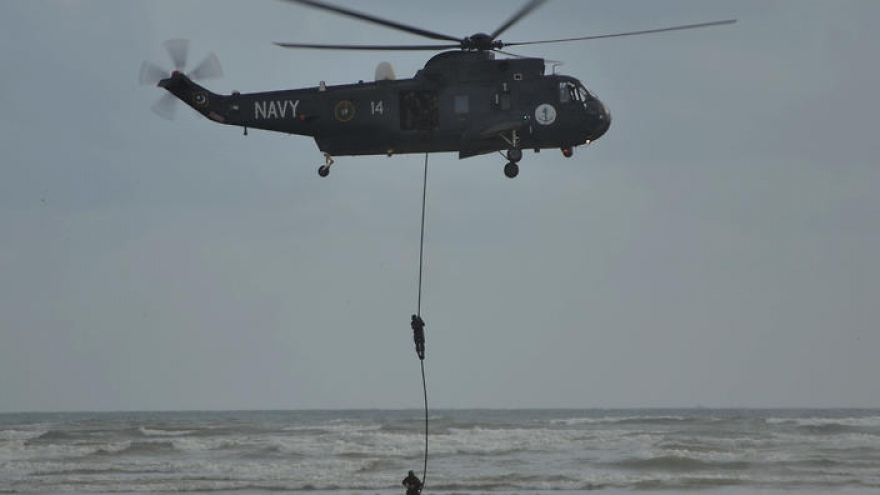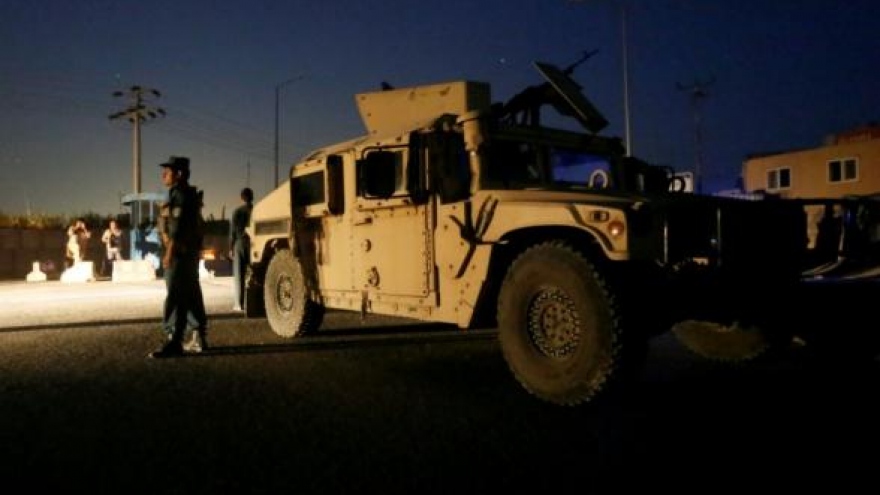Attacks in Afghan capital kill at least 24
A car bomb hit the center of Kabul late on September 5, just hours after a Taliban suicide attack near the Defense Ministry killed at least 24 people including a number of senior security officials, and wounded 91 others, officials said.
 |
| An Afghan policeman keeps watch near the site of a suicide attack in Kabul, Afghanistan September 5, 2016.REUTERS/Mohammad Ismail |
After several hours of quiet overnight, sporadic gunfire and explosions could be heard as day broke but there was no immediate comment on the operation from police and no claim of responsibility.
Just a month before a conference in Brussels where international donors are expected to pledge continued financial support to Afghanistan, the attacks highlighted the precarious security climate in the capital.
Earlier on September 5, twin blasts in quick succession tore through an afternoon crowd in a bustling area of the city close to the Defense Ministry.
The Taliban immediately claimed responsibility for that attack, in which a suicide bomber caught security forces personnel and civilians who rushed to help victims of the first explosion.
"When the first explosion happened people crowded to the site and then the second blast occurred, which was really powerful and killed lots of people," said Samiullah Safi, who witnessed the attack.
An army general and two senior police commanders were among the dead, a Defense Ministry official said. Another official said the deputy head of President Ashraf Ghani's personal protection force had also been killed.
The double bombing came less than two weeks after gunmen attacked the American University in Kabul, killing 13 people.
It was the deadliest attack in Kabul since at least 80 people were killed by a suicide bomber who targeted a demonstration on July 23. That assault was claimed by Islamic State.
The Taliban's ability to conduct coordinated high profile attacks in the capital Kabul has piled pressure on the Western-backed government, which has struggled to reassure a war-weary population that it can guarantee security.
Afghanistan's foreign partners, concerned about the ability of the security forces to withstand Taliban violence, are expected to pledge support over coming years at the Brussels conference, three months after NATO members reaffirmed their commitment at a meeting in Warsaw.
Outside Kabul, the insurgents have stepped up their military campaign, threatening Laskkar Gah, capital of the strategic southern province of Helmand as well as Kunduz, the northern city they briefly took last year.



